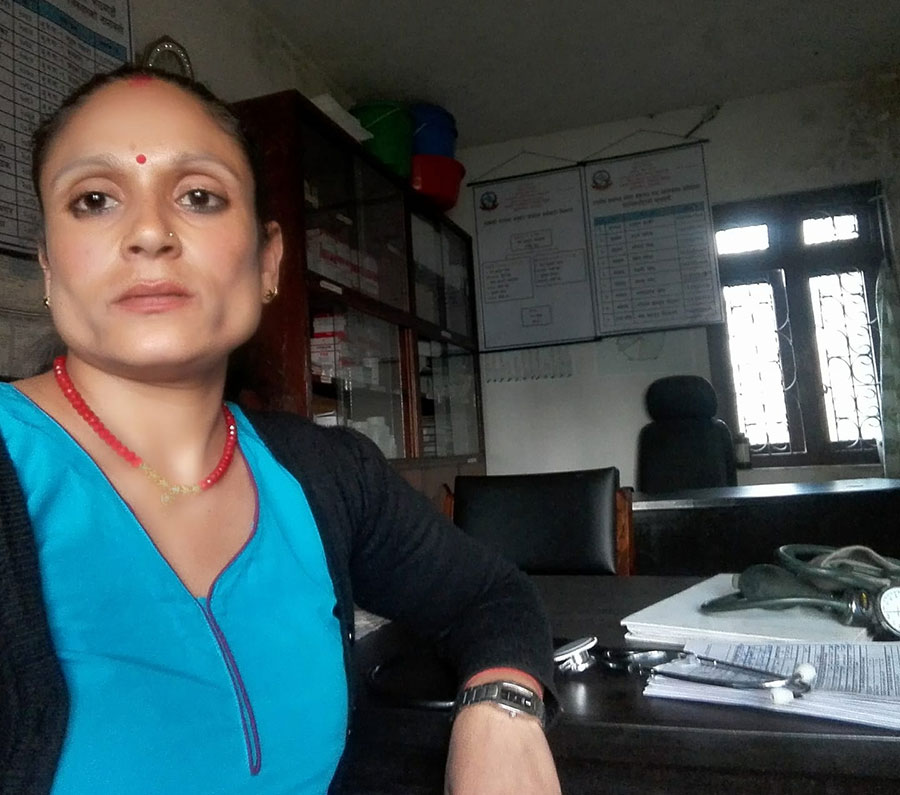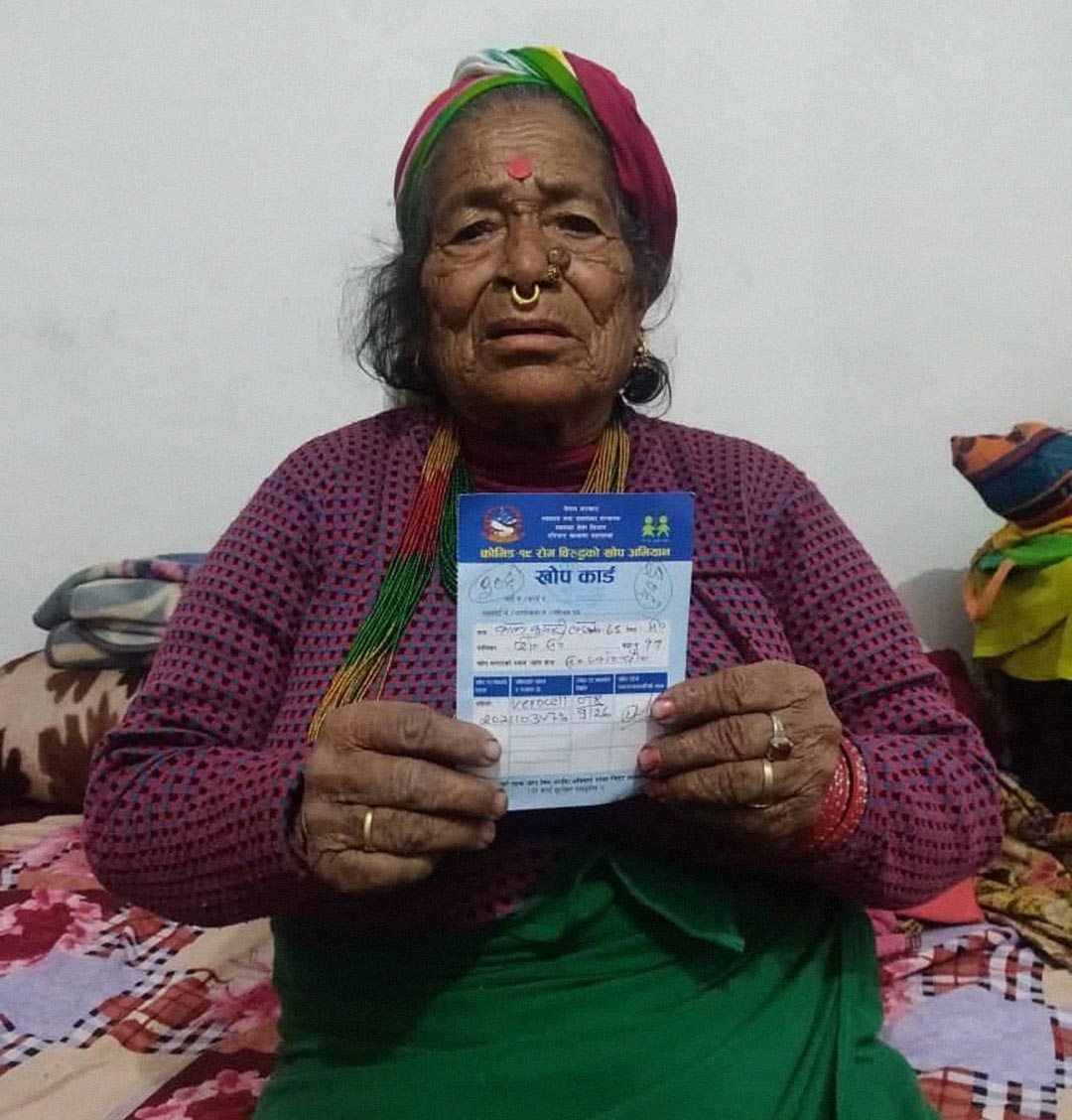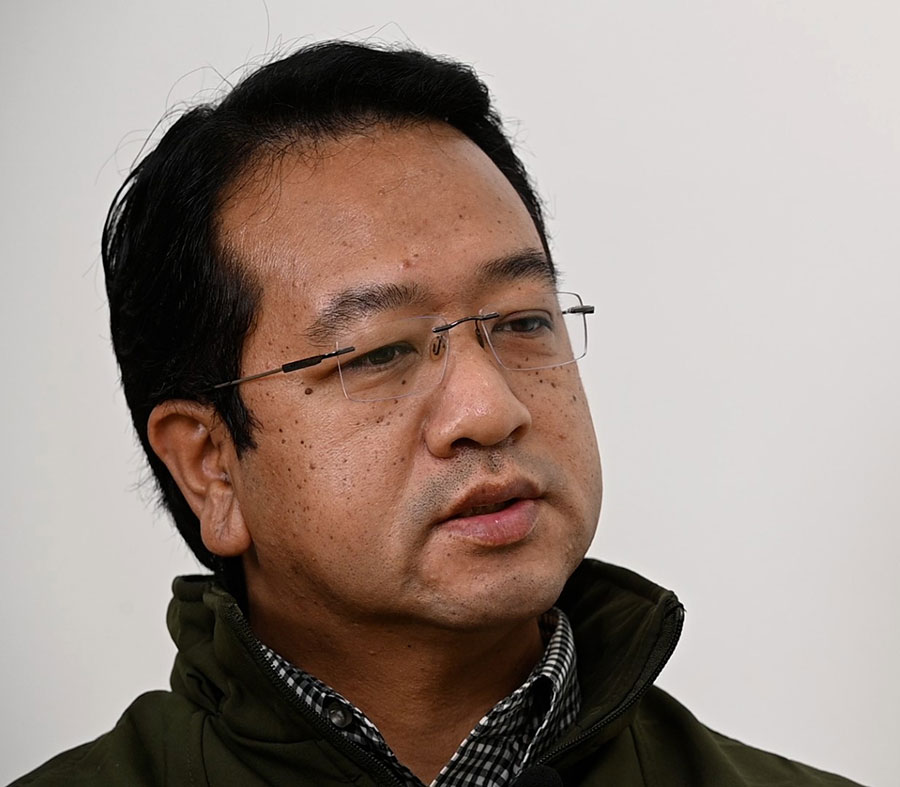Vaccine mandate drastically increases vaccination rate in Nepal
To boost uptake, the Nepalese government has made vaccination cards mandatory for access to public services: it’s working.
- 17 February 2022
- 4 min read
- by Chhatra Karki

As the Omicron variant of COVID-19 spreads rapidly in Nepal, giving rise to a third wave of the pandemic, on 17 January the Nepalese government made it mandatory for people to present vaccination cards for use of public services.
The mandate requires people to, for example, show their vaccination cards before entering banks and government offices.
“Our first priority is vaccination. Our second priority is vaccination. And the third priority is vaccination.”
The vaccination section at the Family Welfare Division of Ministry of Health and Population has stated that the rate of vaccination has increased drastically since the mandate was placed. The increase is also evident in the government data on daily number of vaccinations.
On 11 January, before the vaccine mandate was implemented, 180,457 doses had been administered. After the vaccine mandate, 27 January, 554,566 doses were administered and, on 2 February, 815,796 doses were administered. Daily doses administered went from one or two hundred thousand doses per day to close to a million doses per day.
Sagar Dahal, Chief of the Vaccination Section, says that the vaccine mandate has benefited the nationwide COVID-19 vaccination campaign.
“The government’s decision to make vaccine cards mandatory succeeded in making unvaccinated people understand the importance of getting a jab. It has turbo-charged the rate of vaccination.”
Health workers involved in the vaccination campaign echo Dahal. Mina Lamichhane, an assistant health worker at Budhanilakantha Health Post, Chapali, Kathmandu, says that she sometimes has to stay until 20:00 after the flow of people doubled following the government's mandate.

“People who are busy during the daytime come for vaccines in the evening,” she says. She believes that people who were hesitant about getting a jab took it seriously after the mandate was set.
Have you read?
Eighty-one-year-old Bal Kumari Khadka of Shivasatakshi municipality-11, Jhapa, went to a nearby health post for the jab on 20 January, following the vaccine mandate.

“Initially, I thought that I was too old to get vaccinated. I went to the health post to get vaccinated as soon as I found out that I am not going to receive my social security allowance if I do not get vaccinated. I am glad that I went,” she says.
Dr Sher Bahadur Pun, a virologist at the government's Shukraraj Tropical and Infectious Disease Hospital in Teku, Kathmandu, agrees that the vaccination campaign has been aided by the mandate.

“Some of the people I met recently admitted that they got vaccinated mainly because not doing so would make it hard for them to access public services. The vaccine mandate has succeeded in increasing the rate of vaccination,” he says.
Pun, who has long been advocating for vaccination, is glad that people are getting serious about getting vaccinated.
“Even health workers were suspicious about COVID-19 vaccine in its early days. I wrote articles and gave interviews on television to educate people on the need to get vaccinated. I am happy to see people finally getting vaccinated,“ he adds.
While Nepal has successfully vaccinated about 70% of the targeted population, Pun feels there needs to be greater focus on awareness generation.
Dahal believes that record-keeping on vaccinations at the local level has contributed to the successes the country has experienced. It helps the government understand the vaccine distribution within the country better.
“I had some role as a chief of the vaccination section, however, the campaign could not have succeeded without the positive attitude and cooperation of communities,” he explains.
In addition, when running for office in 2021, Prime Minister Sher Bahadur Deuba had promised to make vaccines his top priority, saying “Our first priority is vaccination. Our second priority is vaccination. And the third priority is vaccination.”
Dahal attributes the PM’s attitude towards vaccination for the aggressive approach taken by the Health Ministry to turbo-charge vaccinations.
More from Chhatra Karki
Recommended for you








